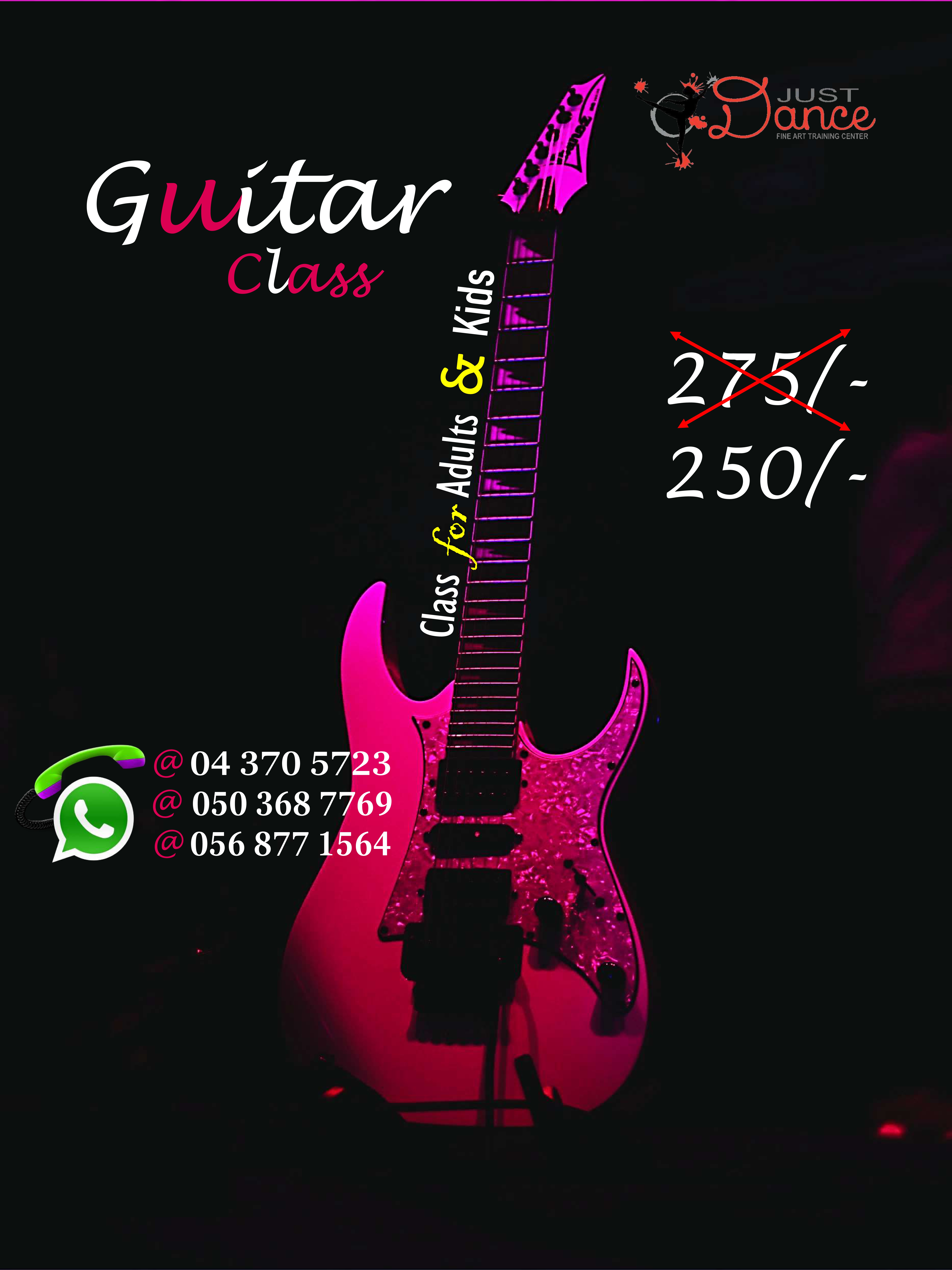Just Dance Performing Arts And Music Centre
Al Karama - Dubai
Products & Services:
Dance Classes, Music Classes, Art Classes, Martial Arts Training, Summer & Winter Camps, Studio & Co More..
Since : 2016
Al Karama - Dubai
Products & Services:
Dance Classes, Music Classes, Art Classes, Martial Arts Training, Summer & Winter Camps, Studio & Co More..
Since : 2016
Afterschool programs are structured learning and recreational activities designed for children to participate in after the regular school day ends. These programs aim to provide academic support, foster creativity, enhance physical development, and improve social skills. Afterschool programs are not just about keeping children occupied—they serve as vital tools to boost their confidence, cognitive skills, and all-round development.
In the multicultural and family-oriented neighborhood of Al Karama, Dubai, afterschool programs have become an essential part of every parent’s checklist. Known for its access to quality education and diverse activity centers, Al Karama hosts a range of afterschool programs tailored to students of all age groups. From science clubs and language tutoring to music classes and sports coaching, the options are vast and varied.
Families looking for afterschool programs in Al Karama often prioritize factors like quality of instructors, variety of activities, affordability, and safety.
Just Dance Performing Arts And Music Centre
Rawdat Al Karama, Shop No. 23, 4A ST,
Opposite To Al Ibrahimi Palace Restaurant Rawdat, Al Karama,
Dubai
Bounce Trampoline Park
Building #32, 4B Street, Al Quoz 1,
Near Times Square Center,
Dubai
Fun Robotics
Unit 26, Al Razi Building (Block B),
Dubai Healthcare City,
Dubai
StepUp Academy
Motor City, Detroit House,
1st Floor, Office F104,
Dubai
The Palette Art Training and Consultancy
G03, Al Qouz Mall,
Al Quoz Industrial Area 3,
Dubai
TechKnowledge Education Services
Al Shafar Investment Building,
Barsha Heights (Tecom),
Dubai
Absolute Volleyball Academy
GEMS Wellington International School,
Al Sufouh Road,
Dubai
Helen O’Grady Drama Academy
Jumeirah Lake Towers,
Fortune Executive Tower,
Cluster T,
Dubai
Melodica Music & Dance Institute
Al Barsha Mall,
1st Floor, Near Food Court,
Al Barsha 2,
Dubai
Elite Sports Academy
Multiple Locations Including:
Victory Heights Primary School,
Dubai Sports City,
Dubai
Afterschool
activities are more than just a way to keep children occupied after regular
school hours—they are an essential part of holistic development. These programs
offer opportunities for kids to explore their interests, build new skills,
engage socially, and have fun in a structured and safe environment.
Whether
it’s sports, art, science, or play-based learning, afterschool activities are
designed to support children emotionally, physically, and intellectually. With
a range of classes and play spaces tailored to different age groups, parents
can find ideal programs that align with their child’s personality, needs, and
passions.
After School Classes for Kids
After
school classes offer structured learning opportunities beyond the typical
academic curriculum. These classes help reinforce school learning while
introducing new, stimulating topics in fun and interactive ways.
Popular
after school class options include:
These
classes help enhance concentration, boost confidence, and develop communication
and teamwork skills. Classes are generally held during late afternoons and are
conducted in small groups to allow personalized attention.
Whether
your child is a budding scientist, artist, orator, or coder—after school
classes provide the right foundation to nurture talents.
Enrichment
activities are designed to help children develop essential life skills beyond
the classroom. These activities promote creativity, critical thinking, physical
fitness, emotional growth, and social interaction. Below is a categorized list
of engaging and age-appropriate enrichment activities for kids.
1. Creative Arts and Crafts
Objective: Enhance creativity, motor
skills, and self-expression
2. Literacy and Language Activities
Objective: Improve vocabulary, reading
comprehension, and communication skills
3. STEM-Based Activities
Objective: Foster logical thinking,
curiosity, and scientific reasoning
4. Performing Arts
Objective: Build confidence, public
speaking, and emotional expression
5. Outdoor and Physical Activities
Objective: Promote physical health,
teamwork, and coordination
6. Mindfulness and Life Skills
Objective: Support emotional well-being
and responsible behavior
7. Digital Enrichment (Supervised Use)
Objective: Introduce digital creativity
and problem-solving
Extracurricular Classes: Expanding Learning Beyond
the Classroom
Extracurricular
classes offer students the opportunity to explore their interests, develop new
skills, and enhance their academic and personal growth outside the traditional
curriculum. These classes play a vital role in shaping well-rounded individuals
by encouraging creativity, discipline, leadership, and teamwork.
1. Performing Arts
Objective: Develop confidence, expression,
and stage presence
2. Visual Arts
Objective: Enhance creativity, focus, and
fine motor skills
3. Academic Enrichment
Objective: Reinforce classroom learning
and promote curiosity
4. Physical and Outdoor Activities
Objective: Build fitness, coordination,
and team spirit
5. Life Skills and Personal Development
Objective: Nurture independence,
resilience, and emotional intelligence
6. Technology and Digital Media
Objective: Promote digital literacy and
creative tech use
7. Hobby and Leisure Classes
Objective: Encourage relaxation,
exploration, and personal interests
An indoor
playground is more than just a fun space—it's a carefully designed environment
where children can play, learn, and grow, regardless of weather conditions.
These indoor spaces combine physical activity, creativity, and social
interaction in a safe and supervised setting.
Features of an Indoor Playground
1. Soft
Play Structures
2.
Toddler Zones
3.
Interactive Play Stations
4. Themed
Play Areas
5.
Trampoline and Climbing Walls
6.
Reading and Quiet Corners
Benefits of an Indoor Playground
Toddler Playground: A World of Safe Discovery and
Fun
A toddler
playground is a specially designed play area tailored to meet the
developmental needs of children aged 1 to 4 years. Focused on safety, sensory
exploration, and early learning, these spaces help toddlers grow physically,
socially, and emotionally through joyful and engaging play.
Key Features of a Toddler Playground
1.
Age-Appropriate Play Structures
2.
Sensory Play Zones
3. Soft
Flooring and Cushioned Surfaces
4.
Pretend Play Corners
5.
Interactive Wall Panels and Toys
6. Quiet
Nooks and Resting Spots
Benefits of a Toddler Playground
Children Play Space: Where Fun Meets Learning
A Children
Play Space is a vibrant and secure environment where kids can engage in
imaginative, physical, and social play. Designed for children of various age
groups, these spaces encourage exploration, creativity, and development through
structured and free-form activities.
Key Features of a Children Play Space
1.
Age-Appropriate Play Zones
2.
Climbing, Sliding, and Balancing Equipment
3.
Sensory and Discovery Areas
4.
Imaginative and Role-Play Corners
5. Indoor
Games and Quiet Activities
6. Safety
and Comfort
Benefits of a Children Play Space
1. What age group is best suited for afterschool
activities?
Afterschool
activities are available for children aged 3 to 15 years, with age-appropriate
programs tailored to developmental needs.
2. Are afterschool programs educational or just
recreational?
They are
both! While some focus on academics (like math or reading), others emphasize
enrichment, physical activity, creativity, and social skills.
3. How many days a week should my child attend
afterschool activities?
2–3 days
a week is ideal for balance, but it depends on your child’s energy levels and
other commitments.
4. Are afterschool programs safe?
Yes.
Reputed centers ensure safety through trained staff, secure premises, and
child-friendly equipment. Always verify safety protocols before enrolling.
5. Do these programs include snacks or meals?
Some
centers provide healthy snacks as part of the package. Others may require kids
to bring their own. Check with the provider in advance.
6. Can I enroll my child in more than one activity?
Absolutely!
Many afterschool centers offer multiple classes, allowing your child to explore
different interests within a single schedule.
7. Do indoor playgrounds accommodate special needs
children?
Many
modern play spaces are inclusive and provide sensory-friendly environments.
It’s best to ask about specific accommodations before visiting.
8. What qualifications do afterschool instructors
have?
Instructors
usually have experience in education, child psychology, or their area of
expertise (music, art, sports, etc.). Always look for reviews and credentials.
9. Is it better to choose academic or creative
enrichment?
A
balanced mix of both works best. Academic activities reinforce school learning,
while creative enrichment boosts imagination and emotional development.
10. How do I choose the best afterschool activity
for my child?
Observe
your child’s interests and try trial sessions before committing. The best
activity is one your child looks forward to attending.

Dubai, Al Karama

Dubai, Al Karama
Latest Customer Reviews
"Best Bharatnatyam classess"